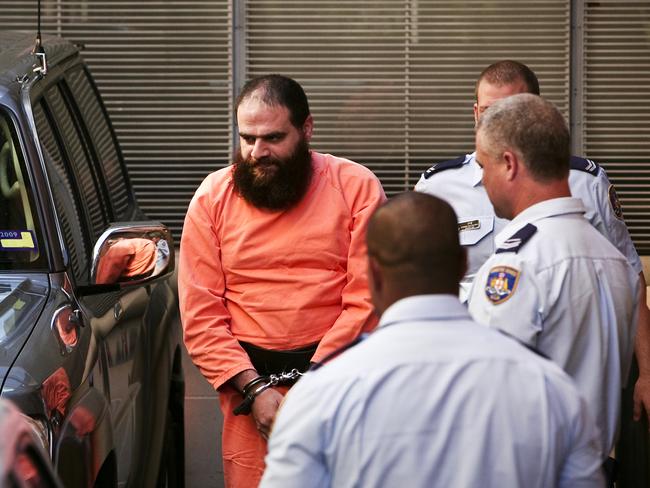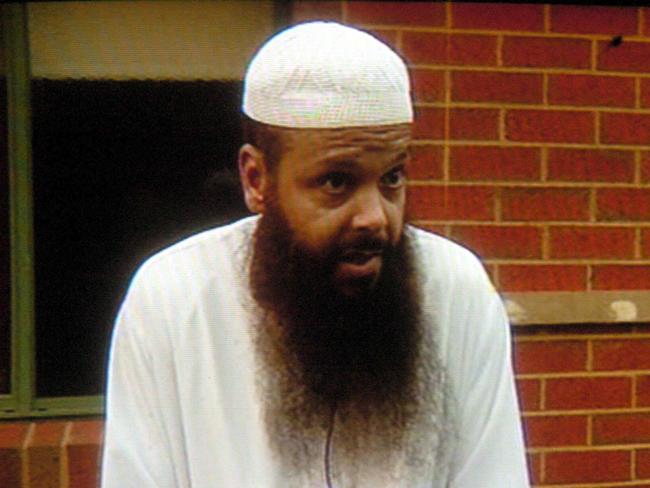Law under review to keep terrorists in jail beyond their sentence
A review is under way to make it easier for police to seek and obtain orders to keep high risk offenders in jail following the accidental release of three convicted terrorists.

Crime in Focus
Don't miss out on the headlines from Crime in Focus. Followed categories will be added to My News.
- Go hard or go home, Tyrrell police told
- Unheard Lindt Cafe terror: ‘There’s that f ***ing … shoot him’
Exclusive: Controversial laws to keep terrorists in jail after their sentence has finished are being reviewed amid fears they may not keep dangerous jihadis Abdul Nacer Benbrika and Belal Khazaal behind bars.
The Criminal Code Amendment (High-Risk Terrorist Offenders) Act was passed in 2017 ahead of the planned release of more than a dozen jihadis who were due to complete their jail terms.
The Government and Labor, which helped pass the laws, had serious offenders like Benbrika and Khazaal in mind when they gave the courts the power to order some terrorists be locked up for a further three years after their sentence was finished on continuing detention orders.
But the laws have proved unworkable, with police unable to prove to the required level that the jihadis would pose a future risk.

The Australian Federal Police have not obtained a single continuing detention order since the laws were passed, with offenders instead being released from prison on interim control orders, meaning they have to be monitored by police.
A review is now under way with the aim of making it easier for police to seek and obtain continuing detention orders for high-risk offenders.
NSW police succeeded in getting a man, known under the pseudonym of Dunn, held for an extra nine months in April last year under NSW legislation.
Former Qantas baggage handler Khazaal is due out in four months, after serving 12 years for preparing an online DIY jihad manual, while Benbrika, from Melbourne, is due for release in November after serving 15 years for his role in plots to attack the AFL grand final and the Lucas Heights nuclear reactor.

Last week in Melbourne, three of the “tinnie terrorists’’ – a group of men who towed a boat from Victoria to far north Queensland with the intention of sailing it to the Philippines to incite an Islamist uprising and overthrowing the Government, were accidentally released without control orders after a legal gaffe.
The Australian Federal Police had wanted continuing detention orders, but the Australian Government Solicitor advised the orders could not proceed, on the morning the cases were to be listed in the Supreme Court. Police were left with insufficient time to seek control orders in the Federal Court.
A story published last week which said the Supreme Court had declined to make the orders was incorrect.

President of the Law Council of Australia Pauline Wright said that unlike sentencing, continuing detention orders were based on predictions that someone who was in jail might reoffend if released.
She said this was “notoriously difficult’’ because no indicative test for radicalisation had been universally accepted.
Ms Wright said a future risk must be proved, otherwise continuing detention orders offended the long-established Australian legal principle of “you do the crime, you do the time, no more and no less.’’
